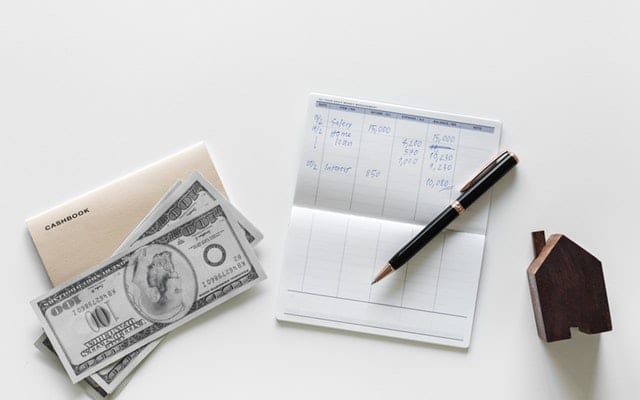How To Get Your Finances Ready For Buying Your First Home
Buying your first home is one of the most exciting milestones in your life. You get to own something tangible and are no longer indebted to landlords. But getting financially ready for this big step can be financially stressful.
If you’re ready to start looking for a house of your own, follow this helpful guide. I’ll show you all the steps you must take with your finances before signing the dotted line! Follow these steps, and you’ll be ready to move into your dream home quickly.
This post is sponsored by Lexington Law. All opinions are 100% my own!
Get A Steady Source of Income
One of the first steps towards buying your first home should be establishing a source of income you can rely on monthly. You can’t buy a house without money! Knowing how much you make from every paycheck can help you make a solid financial plan for your home.
If you currently run your own business or work freelance, that doesn’t mean you will never own property. But having the same income coming into your bank account each month makes it easier to plan your finances. When you have varying sizes of paychecks, you might not be able to make your mortgage payments or save up for your down payment as quickly as you thought.

Consider What You Can Afford
Once you have a steady stream of income, adjust your budget with buying a new home in mind. First, figure out how much you can put towards your down payment and how long it will take to save that. You should also calculate to see if you’ll be able to afford your mortgage without having to survive on ramen for the next decade.
When buying your first home, you must consider where you want to live. This can affect your financial plan! You’ll be putting a lot of money (and probably years of your life) into this house, so you want to make sure it’s both a good fit for you. It shouldn’t leave you penniless.
It would be best if you also thought about how much house you want and need. Perhaps you’re planning to start a family, so you need multiple bedrooms. Or you want a big yard for your dogs to play in. Make a list of “want” and “need” features for your first house, then start shopping.
If fulfilling your “needs” is out of your price range, it’s time to consider a different neighborhood. Figure out which is more important to you, location or extra features of the house, and use that information as your guide as you house hunt.
Start Saving!
Now that you’ve decided on the type of house you want to buy, it’s time to start saving for that down payment. According to Kiplinger, offering a price that is 20% of the home’s value will get you the best mortgage rates.
It’s easy to feel impatient at this point in the home-buying process but chill out. Even if you make good money, saving that much can take a few years. To make it go faster, try budgeting out things you don’t need, like that daily Starbucks or expensive vacation.
In addition to the down payment, it’s also a good idea to start an emergency fund. This should include enough money for living expenses for a few months. When you’re paying a mortgage, money can be tight, so having a little extra in case you can’t work for some reason will make you feel much more at ease. This is especially smart to have if you plan on buying your first home in a new city where you don’t yet have a job.

Improve Your Credit Rating
A good credit score is essential for many reasons, but buying a home is one of the biggest. Having good credit tells mortgage lenders that you aren’t a risky client and that you will make your payments on time. If you have bad credit, though, you’re less likely to get approved for the loan. And unless you can pay for your house in cash, that’s a big problem!
One way to boost your credit is to fix any bad habits you currently have. If you are the type of person who is always a few days late with loan payments or consistently exceeds your credit card limit, you must stop if you are serious about buying a home.
But what if you don’t have the time to fix all the blemishes on your credit report? That’s where Lexington Law can help.
Lexington Law is a credit repair company that helps make your credit score more reflective of your habits. They go through your report and engage in credit disputes on your behalf. That means that they can fight to remove any wrong or unfair items showing up in your financial history.
These credit repair services are the perfect way to ensure that crappy landlord or shady credit card companies don’t get in the form of you buying your first home. Lexington Law uses accurate, legitimate means to fix credit and help you move on to the next step in your adult life!
The credit score you need to get specific mortgage rates varies by city, so research where you need to be. Because of demand, areas with a hotter real estate market and higher demand for homes usually require better credit ratings.
Buying your first home is a significant milestone! That’s why it’s not to be taken lightly. It might seem like an overwhelming process, but never fear! With the few simple steps I’ve outlined above, finding your dream house won’t make you want to tear your hair out.
What are your suggestions for first-time homebuyers? Is there anything you wish you had done before buying your first home? Would you try Lexington Law’s credit repair services? Let us know in the comments below!
Resources
Financial Steps to Take Before Buying a First Home













